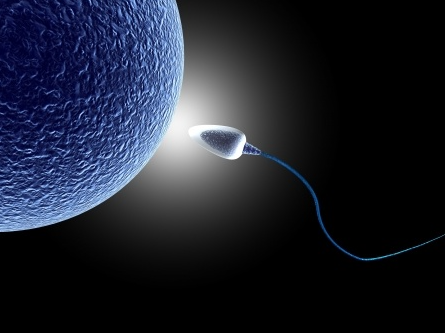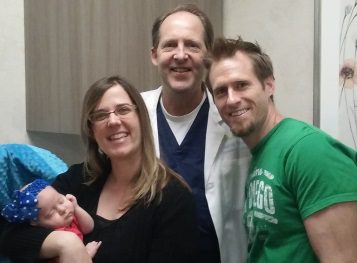You’ve probably seen the frightening news reports of hundreds of Brazilian babies with microcephaly, a serious birth defect characterized by abnormal smallness of the head and incomplete brain development. Infectious disease experts have attributed their condition to the Zika virus, carried by two species of mosquitoes as well as through sexual intercourse with an infected person. The Zika virus can affect pregnant women and their babies at any point in the pregnancy, and currently testing for Zika is complicated and not readily available. Still, the risk of catching Zika, particularly in the U.S. and southern California, is very low and...
The Zika Virus: What You Need to Know
You’ve probably seen the frightening news reports of hundreds of babies born in Brazil with microcephaly, a serious birth defect characterized by abnormal smallness of the head and incomplete brain development. Infectious disease experts have attributed their condition to the Zika virus, carried by two species of mosquitoes as well as through sexual intercourse with an infected person. The Zika virus can affect pregnant women and their babies at any point in the pregnancy and currently testing for Zika is complicated and not readily available, though it most likely will improve in the future. Of course, this news can be...
AMH
AMH – Why testing is done and what it reveals Anti-mullerian hormone or AMH is produced by granulosa cells (cells lining the egg sacs or follicles) within the ovary. Testing a woman’s AMH levels in her blood is one of the many valuable tools employed here at our Los Angeles fertility center to estimate how many eggs a woman has remaining, also called ovarian reserve. AMH can also help reproductive endocrinologists predict a woman’s response to ovarian stimulation and to determine the best strategy for IVF treatment. Understanding AMH and its role in fertility Inside the ovaries are follicles —...

Let’s Pass #IVF4Vets!
Author: Dr. Mickey Coffler Earlier this month, more than 200 infertility advocates (including many from California) and representatives from numerous veterans organization joined Resolve: the National Infertility Association and the American Society for Reproductive Medicine in Washington, D.C. They lobbied for bills that will pay for fertility treatment for wounded veterans. Located in Southern California where many military personnel live, HRC is honored to have the opportunity to help active duty service men and women overcome infertility, much of which is paid for by their military healthcare benefits. My colleagues and I see first-hand the devastating reproductive injuries that our...

Janet Jackson is having a baby!
Too late to get pregnant. She beat the odds, but when is it too late to get pregnant? Janet Jackson is 49 and pregnant. What are the odds that a similar outcome can happen for you? Unfortunately, a woman’s fertility starts to decline after 30, with more significant changes after the age of 35. However, the most dramatic decline occurs after the age of 37, and continues until the age of 45 when the likelihood of pregnancy is exceedingly rare. This is a hard concept for women to grasp. They don’t feel old when they are 40, so it seems hard...

Dr. Robert Boostanfar Lectures at Shanghai Fertility Conference
Dr. Robert Boostanfar spoke at an MSD-sponsored (Merck Pharmaceuticals in the U.S.) fertility conference in Shanghai. Dr. Boostanfar was part of an international contingent speaking to Chinese physicians about the latest in fertility research.

HRC Fertility/OC Releases Live Birth Stats
HRC Fertility/Orange County recently announced it achieved a live birth rate per patient of 83.3 % for women under 35 in a fresh IVF cycle. According to the Society for Assisted Reproductive Technology (SART), national statistics were a 57% live birth rate per female patient with the same characteristics of being under 35 using their own eggs in a fresh IVF cycle. The infertility specialists in Orange County are Drs. Mickey Coffler, Jane Frederick, Sanaz Ghazal and Daniel Potter. For more information, please click here.

IVF Gave Us the Opportunity to Have our Family
Sarah and Dane were ready to have kids; they’d known each other for 11 years, been married five and all their friends were getting pregnant. Everything seemed to be on track—until it wasn’t. After undergoing treatment with Dr. Jeffrey Nelson, Sarah learned she had hyperprolactinemia, a condition where high levels of the hormone prolactin interfere with regular ovulation, and an unicornuate uterus, a rare condition where only half the uterus develops. Dane also had a low sperm count. “We were saddened by the idea that we might not go through the ‘normal’ way of having a child, but we also...
This Week and Every Week #StartAsking the Important Questions
Do you remember your teachers telling you there was no such thing as a ‘silly’ question? That was wise advice. Questioning the world around you and your particular situation can help you manage life’s challenges. Knowledge is power and starts with asking questions. Sunday, April 25 is the start of this year’s National Infertility Awareness Week. RESOLVE: The National Infertility Association, spearheads this occasion and is encouraging you to #StartAsking as this year’s theme. They want you to #startasking your doctors, legislators, employers, insurance companies and others about how they can help you better navigate your infertility journey. The physicians...
This is Not an April Fool’s Joke!
These factors seriously can affect your fertility. Have you been the victim of an April Fool’s joke today? Have no fear, we will not be pranking you. Often we meet with patients who are flabbergasted when they learn they have fertility problems. Seemingly, they have done everything right in their lives to keep themselves healthy, so what’s their problem? Fertility light Obsessed with exercising, dieting and a low body weight? This might be a factor for women trying to conceive. According to the American Society for Reproductive Medicine website, low body weight in women accounts for 6% of primary infertility....

